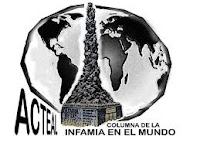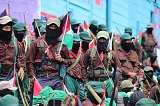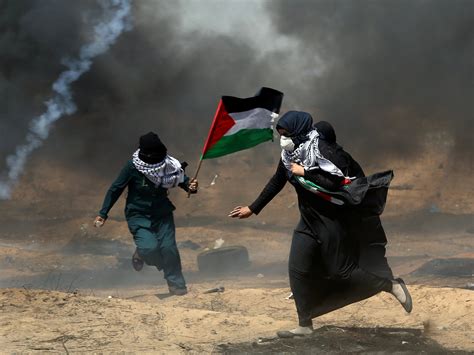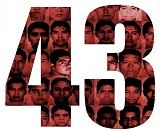Teuchitlán: La verdad que entierra la 4T
Fuente: El SurAcapulco
Por Tryno Maldonado
Existe una fecha que en México las autoridades ignoran. El 24 de marzo la ONU conmemora el Día Internacional del Derecho a la Verdad. Se antoja como un recordatorio incómodo para gobiernos que prefieren el olvido a la justicia. En México, ese día pasa entre discursos vacíos y cifras maquilladas, mientras fosas clandestinas como el rancho Izaquirre en Teuchitlán, Jalisco, siguen brotando y se convierten en símbolos de un Estado que sistemáticamente desaparece, extermina y emplea similar de cantidad de recursos y de poder para borrar las evidencias. Las madres buscadoras que recorren esos terrenos con picos y palas saben que, a diferencia de los gobiernos que usan la palabra para mentir, la verdad no es algo abstracto: se materializa diariamente en los huesos calcinados, en los zapatos abandonados, en las mochilas vacías con logotipos y leyendas partidistas, en las prendas rotas, en los dientes humanos que algún fiscal “perdió” en el expediente. Pero, si no bastara, hoy, incluso, el dolor de los casi 200 colectivos de madres buscadoras es criminalizado por el movimiento partidista que prometió dar verdad y justicia a la crisis de desapariciones.
El rancho Izaquirre, descubierto en 2021 gracias a la insistencia de colectivos como Guerreros Buscadores de Jalisco, funciona como un espejo de la impunidad de los gobiernos mexicanos. Según lo reportó el Centro de Derechos Humanos Miguel Agustín Pro Juárez (Centro Prodh), las fiscalías estatales llegaron antes que los peritos independientes, alterando el terreno donde después se encontrarían restos humanos calcinados y mezclados con cal. “Llegamos a ver huellas de maquinaria pesada y áreas que parecían recién removidas”, declaró Ana Karen López, integrante del colectivo Hasta Encontrarles.
La respuesta institucional ha seguido un guión conocido: primero la negación, luego la minimización. El 23 de marzo de 2025, el colectivo Guerreros Buscadores de Jalisco emitió un pronunciamiento en el que denunciaba cómo la Fiscalía de Jalisco ha retrasado por meses la entrega de resultados periciales. Paralelamente, las madres buscadoras enfrentan campañas de desprestigio desde instancias federales: desde acusaciones de “profanación” hasta señalamientos de que “obstaculizan” las investigaciones oficiales o que, llanamente, ellas mismas realizaron un montaje y una campaña para desprestigiar al gobierno de Claudia Sheinbaum.
El rancho Izaguirre como campo de exterminio, sin embargo, no es una excepción: es el modelo. Entre 2006 y 2024, de los sexenios de Felipe Calderón Hinojosa, Enrique Peña Nieto y Andrés Manuel López Obrador, más de 140 mil desaparecidos evidencian que el horror es sistémico. Nos hemos cansado de llamarlos “los desaparecidos de Calderón” , “los desaparecidos de Peña” y “los desaparecidos de AMLO” (7 mil más si contamos los casos de desapariciones que van en el sexenio de Sheinbaum), pero son los desaparecidos de un necro-Estado mexicano podrido hasta la médula. Hoy, como hace diez años, ha vuelto el viejo reclamo en todo el país: Fue el Estado. Es el Estado. Las fosas son eso: el síntoma más aterrador de una necro-política de Estado.
Las fiscalías cómplices son una pieza capital de este entramado. Las autoridades limpiaron el rancho Izaguirre en dias pasados antes de permitir de vuelta el acceso a familias, “Entramos a ver un museo, no un campo de exterminio”, denunciaron las madres buscadoras al atestiguar la profunda manipulación del lugar. “lo pintaron, lo barrieron, lo arreglaron todo. Es un circo, una burla para nuestro dolor”. La mentira institucional perdura. El gobierno de Sheinbaum, como el de Peña NIeto, como el de AMLO, como el de Calderón, primero negó, luego minimizó. Como con Ayotzinapa, como con los 72 de San Fernando. El guión es el mismo hasta la ignominia: “no pasó. Bueno, pasó, pero no fue tanto. Es decir, sí fue, pero ya estamos investigando”.
No “llegaron todas”, como afirma la presidenta Claudia Sheinbaum: las madres buscadoras se siguen enfrentando por propia mano al monstruo institucional que ahora ella encabeza. Este patrón no es exclusivo de Jalisco. Jacobo Dayán, experto en derechos humanos, ha señalado que “el Estado mexicano gasta más recursos en limpiar su imagen que en limpiar las fosas”. La afirmación cobra fuerza al revisar casos como Ayotzinapa, donde Alejandro Gertz Manero, titular de la Fiscalía General de la República, ha sido acusado por organizaciones como Centro Prodh y Serapaz de boicotear las pesquisas internacionales. Esa misma estrategia se replica en Teuchitlán por el mismo fiscal: dilación, opacidad y criminalización de quienes buscan.
Aunque esa actitud de indolencia y estrategia de gobierno no es para sorprenderse. El silencio sobre la crisis de desapariciones de parte de Sheinbaum siempre ha sido ensordecedor. Un análisis de las 100 propuestas para la construcción del segundo piso de la Cuarta Transformación (disponibles en la plataforma digital de Sheinbaum) revela que el tema de desaparecidos no apareció nunca, ni como subtema en seguridad ni en su horizonte de derechos humanos, Esta omisión resulta particularmente grave. Y ya ante el estallido del tema, trata de parchar con propuestas viejas, insuficientes, y sin escuchar, de nuevo, a las víctimas.
Sin verdad no puede existir democracia. Y los casi 200 colectivos de víctimas -cifra de la ONU en 2023- son humillados e ignorados una y otra vez por la 4T en su búsqueda por verdad. Las madres buscadoras en su dignidad lo saben: la justicia no vendrá de arriba. Por eso cavan sin descanso aún a riesgo de sus propias vidas. Por eso, en pleno 2025, el rancho Izaguirre se ha convertido en el primer gran monumento de los gobiernos de las Cuarta Transformación: un monumento olímpico a su total impunidad, aquiescencia y complicidad









.jpeg)
.jpeg)











